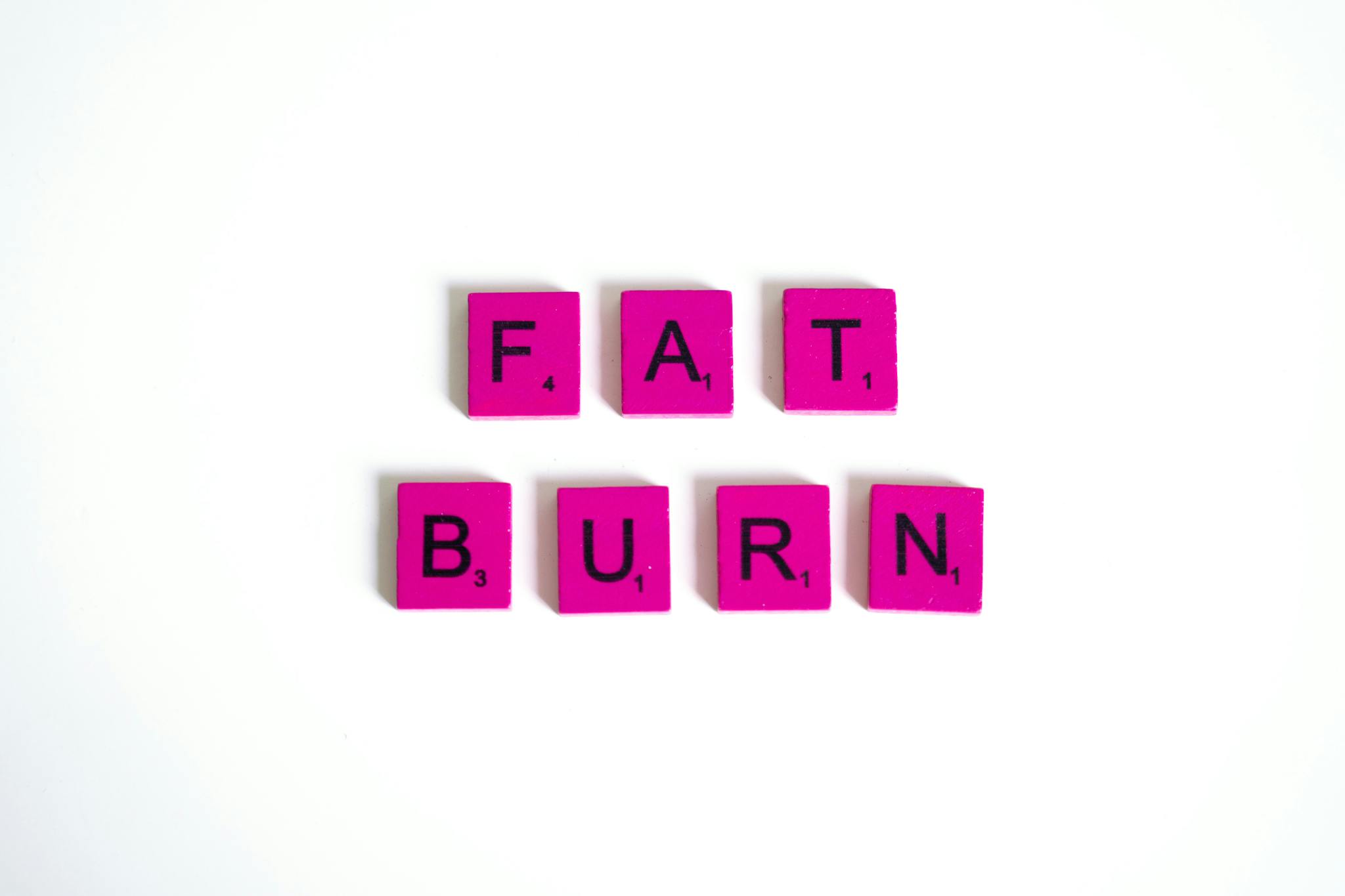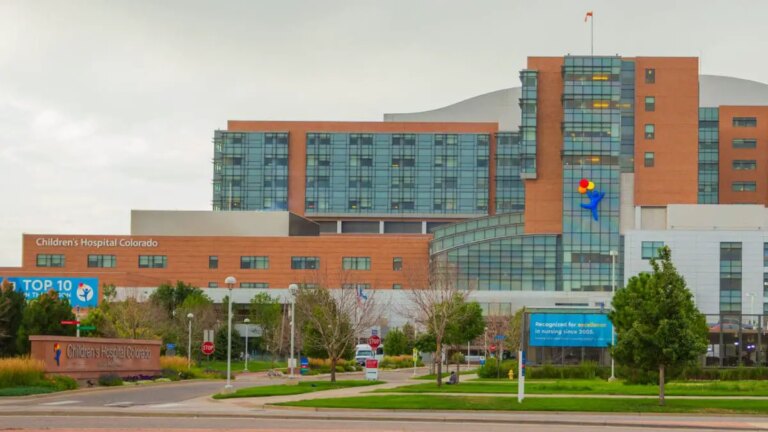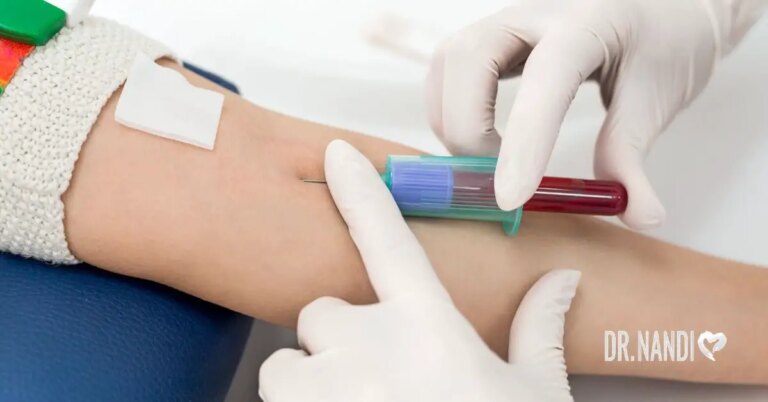When we aim for better health, we often focus on the obvious – diet, exercise, and sleep. Yet, there’s a silent hero in the background, pivotal to our well-being and crucial in the quest for weight loss: the liver. This vital organ, your body’s most important fat-burning ally, is at the heart of numerous bodily functions, especially detoxification. With over 500 vital functions to its credit, the liver is not just a participant in our body’s health; it’s a leader, making sure our bodies work well and keep us full of energy.
Even though it’s very important, the liver often doesn’t get the attention it deserves. A healthy liver is essential for our body to work right, for losing weight, and for living a healthy life. Its role in filtering toxins, aiding digestion, and supporting metabolism means that without a properly functioning liver, our efforts towards losing weight and enhancing our health could be in vain.
As we dive into understanding the liver’s vital role in our health, we’ll explore its multifaceted functions, understand the signs of liver distress, and learn how to nurture this key organ. We aim to keep you interested and make sure everything is easy to understand, without any complicated terms. Knowing more about the liver is the first step to improving our health and boosting our body’s ability to burn fat.
The Liver’s Multifaceted Role
The liver, often an unsung hero in our quest for health, is a cornerstone of our body’s internal system, performing over 500 vital functions that contribute to our overall well-being.1 At its core, the liver’s primary role is to process substances in our blood, filtering out toxins and waste products and converting them into harmless substances that can be easily excreted. This detoxification process is not just about cleansing; it’s a sophisticated mechanism crucial for maintaining our body’s equilibrium.
One of the liver’s remarkable abilities is to transform toxins into water-soluble forms that can be expelled from the body through urine or bile. Bile, a fluid produced by the liver, is particularly important for digesting fats and is a pathway for the liver to dispose of toxins.2 However, the liver’s efficiency hinges on its health and the availability of necessary nutrients. When the liver is undernourished or overwhelmed by toxins, its performance can falter, leading to a sluggish system that affects our entire body.
This impairment in liver function can manifest in several ways, including the buildup of toxins in our adipose (fat) tissues. These stored toxins are a testament to the liver’s struggle and remain locked away until liver health is improved and they can be safely processed.3 Furthermore, the liver’s role in managing bile flow is critical. Stagnant bile flow, resulting from a congested liver, can cause a domino effect of health issues, from fatigue and constipation to more severe symptoms like PMS and increased toxicity levels.4
Understanding the liver’s multifaceted role underscores the importance of nurturing this vital organ. A well-functioning liver not only ensures the efficient removal of toxins but also supports our digestive system, hormonal balance, and energy levels. It’s a testament to the saying that a healthy liver leads to a healthy life.
Signs Your Liver Might Need Support
Our body has a unique way of signaling when something is amiss, and the liver is no exception. Recognizing the signs of a liver in distress is the first step towards addressing potential issues before they escalate. Here are some indicators that your liver, along with your gallbladder, might be calling out for help:
- History of alcohol/drug use or hepatitis: These factors significantly stress the liver, compromising its ability to function optimally.
- Long-term prescription drug use: Medications, especially antibiotics, Accutane, birth control pills, and pain medications, can inflict damage on the liver over time.
- Sensitivity to chemicals: If exposure to tobacco smoke, fumes, perfume, and cleaning agents bothers you more than it does others, your liver could be signaling its distress.
- Digestive issues after greasy foods: Experiencing stomach upset or changes in stool quality after consuming fatty meals can indicate a sluggish bile flow, a direct reflection of liver health.
- Unexplained symptoms: Symptoms like headaches over the eyes, a bitter taste in the mouth after meals, or experiencing nausea and motion sickness more frequently than usual could be subtle hints from your liver.5
Moreover, lifestyle factors, including heavy supplement use, particularly of Vitamin A, copper, iron, and certain herbs, can overburden the liver. Pain under the right side of the rib cage, hemorrhoids, varicose veins, and a chronic feeling of fatigue or fibromyalgia are also signs that your liver may be under strain.
It’s important to listen to these signals and consider them a call to action. Addressing liver health isn’t just about averting disease; it’s about enhancing your body’s natural detoxification processes, boosting energy levels, and improving overall vitality. If you identify with one or more of these signs, it might be time to focus on supporting your liver.
Liver Health and Weight Loss Resistance
When embarking on a weight loss journey, many overlook the liver’s pivotal role. Yet, when the liver is not functioning at its best, losing weight can become an uphill battle. Understanding how liver health impacts weight loss resistance is crucial for anyone struggling to shed pounds despite their best efforts. Here are key factors where the liver plays a central role:
- Toxic Burden: The liver’s primary function is detoxification. An overloaded liver prioritizes removing toxins over burning fat, leading to weight loss resistance. Toxins stored in fat cells make the body reluctant to lose fat, as doing so would release these toxins into the system.6
- Hormonal Imbalances: The liver is instrumental in regulating hormones. A compromised liver can lead to imbalances that affect the body’s ability to manage weight and metabolism.7 For instance, estrogen dominance, a common hormonal imbalance, can be exacerbated by poor liver function, affecting fat distribution and weight gain.
- Inflammation and Insulin Resistance: A healthy liver helps to keep systemic inflammation in check. However, a liver burdened by toxins and poor diet can contribute to chronic inflammation, leading to conditions like insulin resistance. This not only hampers fat burning but also encourages the storage of fat, particularly around the abdomen.8
- Impaired Nutrient Absorption: The liver’s role in producing bile is critical for digesting and absorbing fats and fat-soluble vitamins. A liver that isn’t operating efficiently can lead to malabsorption of nutrients, which is essential for metabolism and energy production, further complicating weight loss efforts.9
Recognizing the link between liver health and weight management offers a new perspective for those facing weight loss resistance. Instead of focusing solely on calories in versus calories out, addressing liver health can unlock the body’s natural ability to lose weight. This holistic approach not only facilitates weight loss but also enhances overall health by ensuring the liver functions optimally, supporting the body’s natural detoxification processes, and maintaining hormonal balance.
Boosting Your Liver Health for Weight Loss
Improving liver health is a multifaceted approach that encompasses diet, lifestyle changes, and stress management. Here are actionable tips to support your liver, boost your metabolism, and enhance your body’s fat-burning capabilities:
Eat a Nutrient-Dense Diet
- Focus on Whole Foods: Incorporate plenty of vegetables, fruits, whole grains, lean proteins, and healthy fats into your diet. Foods particularly beneficial for liver health include leafy greens, cruciferous vegetables (like broccoli and Brussels sprouts), berries, nuts, and seeds.
- Liver-Supportive Foods: Certain foods are known for their liver-supporting properties. Garlic, turmeric, and citrus fruits, for example, help boost the liver’s detoxification processes. Beets, carrots, and green tea are also excellent choices.
Stay Hydrated
- Water is Key: Adequate hydration helps the liver flush toxins out of the body. Aim for at least 8 glasses of water a day, more if you’re active or live in a hot climate.
Limit Intake of Harmful Substances
- Alcohol Moderation: Alcohol can be particularly taxing on the liver. Reducing alcohol consumption can significantly lower the liver’s workload.
- Minimize Processed Foods: Foods high in added sugars, salt, and unhealthy fats add to the liver’s detoxification burden. Opting for unprocessed, natural foods helps lighten this load.
Exercise Regularly
- Boost Circulation: Physical activity not only aids weight loss but also improves circulation, helping the liver function more efficiently. Aim for a mix of cardio, strength training, and flexibility exercises.
Manage Stress
- Relaxation Techniques: Chronic stress can negatively impact liver health. Practices such as meditation, yoga, or simply engaging in hobbies can reduce stress levels and support liver function.
By integrating these strategies into your daily routine, you not only support your liver but also set the stage for sustainable weight loss and improved overall health. Remember, the journey to a healthier liver and a leaner body doesn’t happen overnight. Consistency is key, as is patience and kindness towards your body as it adjusts to these positive changes.

Supplements and Natural Remedies for Liver Support
While diet and lifestyle adjustments are foundational to supporting liver health, certain supplements and natural remedies can provide additional benefits. However, it’s crucial to consult with a healthcare professional before incorporating any new supplements into your routine. Here are some supplements and natural remedies known for their liver-supportive properties:
Milk Thistle
- Milk Thistle (Silymarin): This herb is one of the most well-researched for liver health, known for its ability to support liver function and help repair liver cells. It acts as an antioxidant, combating the free radical damage that can lead to inflammation and liver disease.10
Turmeric
- Turmeric (Curcumin): The active compound in turmeric, curcumin, is celebrated for its anti-inflammatory and antioxidant properties. It can help boost liver detoxification by improving bile production and protecting liver cells from damage.11
Dandelion Root
- Dandelion Root: Traditionally used in herbal medicine to support liver and gallbladder health, dandelion root stimulates bile flow and helps the liver filter and remove toxins from the blood.12
Castor Oil Packs
- Castor Oil Packs: Applying castor oil packs to the abdomen is believed to enhance liver function, improve lymphatic circulation, and reduce inflammation. While scientific evidence is limited, many practitioners recommend it for its purported benefits to liver health and detoxification.
Lifestyle Practices
- Hydration and Diet: Beyond supplements, maintaining adequate hydration and a nutrient-dense diet rich in antioxidants and fiber supports liver health and its detoxification processes.
- Regular Exercise: Regular physical activity helps improve circulation and liver health, contributing to more effective detoxification and metabolism.
It’s important to approach liver health holistically, considering not only supplements but also the broader spectrum of diet, exercise, and stress management. Supplements can be a valuable part of this approach, but they should complement rather than replace healthy lifestyle choices.
Liver Health: The Keystone to Vitality and Weight Management
The liver, often underestimated, is a powerhouse of detoxification and metabolism, playing a pivotal role in our overall health and weight management efforts. Embracing a lifestyle that supports liver health is not just about enhancing this organ’s function; it’s about committing to a holistic approach that benefits our entire body. From the foods we eat to the supplements we choose and the lifestyle changes we implement, every decision can contribute to a healthier, more vibrant liver.
Recognizing the signs of liver distress early and taking proactive steps to support this vital organ can lead to significant improvements in energy levels, digestion, hormonal balance, and weight loss efforts. By focusing on nutrient-dense foods, staying hydrated, moderating harmful substances, engaging in regular physical activity, and managing stress, we create an environment where our liver can thrive.
Moreover, supplements like milk thistle, turmeric, and dandelion root, along with practices like castor oil packs, offer additional support, enhancing the liver’s natural detoxification processes and overall health. However, it’s essential to remember that these supplements and remedies should complement a healthy lifestyle and not replace it.
Prioritizing liver health is a crucial aspect of achieving and maintaining a healthy weight and a vibrant, energetic life. By making informed choices and adopting liver-supportive habits, we can empower our bodies to function optimally, unlocking our full health potential. Let’s not overlook the liver’s critical role in our journey toward a healthier self. After all, a happy liver leads to a happy life.
My Personal RX on Losing Weight
As a doctor deeply committed to the health and well-being of my patients, I’ve seen firsthand the challenges and triumphs of the weight loss journey. A holistic approach, encompassing a balanced diet, regular exercise, and mindful lifestyle choices, has consistently proven to be the most effective path to sustainable weight management. Here are my personalized tips, including some innovative products designed to support your journey:
- Incorporate High-Fiber Foods: Start your day with high-fiber foods like oatmeal or a green smoothie. Fiber aids digestion, keeps you feeling full longer and is essential for a healthy metabolism.
- Stay Hydrated: Drinking enough water throughout the day cannot be overstated. It boosts your metabolism, helps with detoxification, and can reduce the feeling of hunger.
- Regular Physical Activity: Aim for at least 30 minutes of moderate to vigorous exercise daily. Whether it’s a brisk walk, yoga, or a gym session, find an activity you enjoy.
- Mindful Eating: Pay attention to what you eat and savor each bite. This practice helps with portion control and allows you to enjoy the flavors and textures of your food.
- Incorporate my MetaBurn Supplements into Your Routine: This supplement is designed to support optimal weight by aiding in fat burn and reducing cravings, making it a valuable ally in your weight loss efforts.
- Explore Recipes with my Super Snacks Cookbook: Perfect for those looking for wholesome options. My Super Snack cookbook offers recipes that integrate superfoods in enjoyable ways, ensuring your snacks are not only healthy but also satisfying.
- Limit Processed Foods and Sugars: Reducing your intake of processed foods and sugars can dramatically improve your health and aid in weight loss.
- Get Adequate Sleep: Never underestimate the power of a good night’s sleep. Sleep is crucial for recovery, metabolism, and hormone balance—all vital for weight loss.
- Practice Stress Management: High-stress levels can hinder weight loss. Techniques such as meditation, deep breathing, or engaging in hobbies can help manage stress.
- Listen to Your Body: Tune into your body’s hunger and fullness signals. Eating intuitively can prevent overeating and help maintain a healthy weight.
Remember, weight loss is a journey that involves a comprehensive approach. Integrating supportive products like MetaBurn and Super Snacks can offer an additional boost, but the foundation of success lies in balanced nutrition, regular physical activity, and a mindful approach to lifestyle choices.
Sources:
- The liver and its functions. (n.d.). https://columbiasurgery.org/liver/liver-and-its-functions ↩︎
- Grant, D. M. (1991). Detoxification pathways in the liver. Journal of Inherited Metabolic Disease, 14(4), 421–430. https://doi.org/10.1007/bf01797915 ↩︎
- Liu, Q., Bengmark, S., & Qu, S. (2010). The role of hepatic fat accumulation in pathogenesis of non-alcoholic fatty liver disease (NAFLD). Lipids in health and disease, 9, 42. https://doi.org/10.1186/1476-511X-9-42 ↩︎
- Johnson, S. E., & Sherding, R. G. (2006). Diseases of the Liver and Biliary Tract. Saunders Manual of Small Animal Practice, 747–809. https://doi.org/10.1016/B0-72-160422-6/50073-5 ↩︎
- Clinic, C. (2023, December 5). 4 signs your liver is in trouble + tips to protect it. Cleveland Clinic. https://health.clevelandclinic.org/4-signs-your-liver-is-in-trouble-and-tips-to-protect-it ↩︎
- Viljanen, A., Iozzo, P., Borra, R., Kankaanpää, M., Karmi, A., Lautamäki, R., Järvisalo, M. J., Parkkola, R., Rönnemaa, T., Guiducci, L., Lehtimäki, T., Raitakari, O. T., Mari, A., & Nuutila, P. (2009). Effect of weight loss on liver free fatty acid uptake and hepatic insulin resistance. The Journal of Clinical Endocrinology & Metabolism, 94(1), 50–55. https://doi.org/10.1210/jc.2008-1689 ↩︎
- Rui L. (2014). Energy metabolism in the liver. Comprehensive Physiology, 4(1), 177–197. https://doi.org/10.1002/cphy.c130024 ↩︎
- Robinson, M. W., Harmon, C., & O’Farrelly, C. (2016). Liver immunology and its role in inflammation and homeostasis. Cellular & molecular immunology, 13(3), 267–276. https://doi.org/10.1038/cmi.2016.3 ↩︎
- Werner, A. (2013). Fat absorption and lipid metabolism in cholestasis. Madame Curie Bioscience Database – NCBI Bookshelf. https://www.ncbi.nlm.nih.gov/books/NBK6420/ ↩︎
- Achufusi, T. G. O. (2022, September 12). Milk Thistle. StatPearls – NCBI Bookshelf. https://www.ncbi.nlm.nih.gov/books/NBK541075/ ↩︎
- Farzaei, M. H., Zobeiri, M., Parvizi, F., El-Senduny, F. F., Marmouzi, I., Coy-Barrera, E., Naseri, R., Nabavi, S. M., Rahimi, R., & Abdollahi, M. (2018). Curcumin in Liver Diseases: A Systematic Review of the Cellular Mechanisms of Oxidative Stress and Clinical Perspective. Nutrients, 10(7), 855. https://doi.org/10.3390/nu10070855 ↩︎
- Pfingstgraf, I. O., Taulescu, M., Pop, R. M., Orăsan, R., Vlase, L., Uifalean, A., Todea, D., Alexescu, T., Toma, C., & Pârvu, A. E. (2021). Protective Effects of Taraxacum officinale L. (Dandelion) Root Extract in Experimental Acute on Chronic Liver Failure. Antioxidants (Basel, Switzerland), 10(4), 504. https://doi.org/10.3390/antiox10040504 ↩︎













 Subscribe to Ask Dr. Nandi YouTube Channel
Subscribe to Ask Dr. Nandi YouTube Channel










